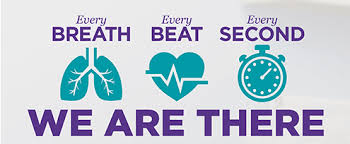Certified Registered Nurse Anesthetists (CRNA) Week runs this week from January 21 to 27 and is an excellent opportunity for student nurses to find out more about this path in a nursing career.
With more than 52,000 nurse anesthetists and student nurse anesthetists, the career is thriving and attractive for several reasons. Many nurse anesthetists say the patient interaction they have is unsurpassed. They are with patients before, during, and after surgery, so there’s a necessary trust that is quickly established with the skill and care of the nurse.
Nursing students who are considering this as a career have many resources they can reference and various organizations that will help them succeed on this career path. The American Association of Nurse Anesthetists (AANA) is especially aware of promoting health and wellness among the student nurses who seek a career in this branch of nursing. The AANA’s 2017 report Wellness and Thriving in a Student Registered Nurse Anesthetist Population explored the significance of the relationship between student wellness and how well students do in their academic program.
To celebrate CRNA Week, Minority Nurse recently posed some questions to Michael Neft, DNP, MHA, CRNA, FNAP, FAAN, and assistant director of the Nurse Anesthesia Program University of Pittsburgh School of Nursing and nursing student Sara Wilkinson, BSN, RN, CCRN SRNA at University of Tennessee Health Sciences Center. The following are their answers.
Why is the AANA particularly aware of the health and wellness among student nurses looking to enter or actively studying in this field?
Student nurses are the future of the profession, and it is important to cultivate and prepare for a long and healthy career. Students who aspire to enter into nurse anesthesia programs must be healthy mentally and physically. They must have healthy outlets for stress relief, and healthy lifestyle habits that will support them throughout our educational programs.
Nurse anesthesia education programs are required by their accreditation standards to provide education content on wellness and substance use disorder. The AANA actively encourages members, students, as well as educational programs to engage whenever possible in healthy behaviors, whether that includes physical activity or simply reducing stress by encouraging individuals to take time for their loved ones or to engage in an activity they love.
The AANA is committed to providing resources and information about ways to become involved in establishing a healthy lifestyle and even offers fun runs, wellness tutorials and a massage therapy area at many of their conferences.
How does establishing good health and wellness practices now help a student nurse become better? And how will taking care of oneself now carry over once they graduate and are several years into a CRNA career?
Nursing has unique stressors like dealing with patient care situations that require critical thinking, fast decision making, and autonomy is tough. If the student nurse does not have the ability to cope with these situations autonomously, it is very difficult to care for patients. Maintaining both mental and physical health and wellness are at the foundation of successful practice.
Developing healthy lifestyle habits early, helps students handle stress more effectively, set clear goals, and develop a clear plan to achieve them. They also assist students with discipline, good study habits, prepare for clinical experiences properly, and self-evaluate objectively. It also helps to establish diet and exercise plans that can be adjusted as one transitions to practice, to avoid elimination of healthy habits out of inconvenience.
Maintaining a school-life balance is also important to develop a support system and find time for small, pleasant breaks to gives a fresh perspective and recharge. Establishing healthy behaviors and habits early is vital to long-term health, wellness, and maintenance of a successful career.
Do you have any advice for student nurses about considering this field and being aware of any challenges unique to this branch of nursing?
For student nurses considering the field of nurse anesthesia, awareness about the depth and breadth of study is valuable, but is important to be well, so that an individual will have the endurance to graduate. A strong support system and personal discipline are necessary to allow for healthy stress relief and appropriate professional conduct. Anesthesia remains the field with the highest incidence of drug abuse and unhealthy coping behaviors, due to high stress and access.
Think about what you do when stressed. Review your lifestyle habits: exercise, eating, alcohol use, and other substance use. Some prospective students may want to employ a lifestyle coach who can look at a person individually and help one to develop positive lifestyle habits that will set one up for success in graduate school and a stressful career. Good study habits, a healthy respect for one’s self and career, use of study resources, and strong, supportive relationships will be required to succeed and thrive in this field.
- WOC Nurses Week Highlights Specialty - April 16, 2024
- Honoring Radiology Nurses Day on April 12 - April 12, 2024
- Travel Offers New Career Possibilities - April 8, 2024



